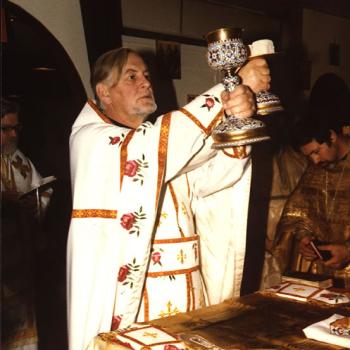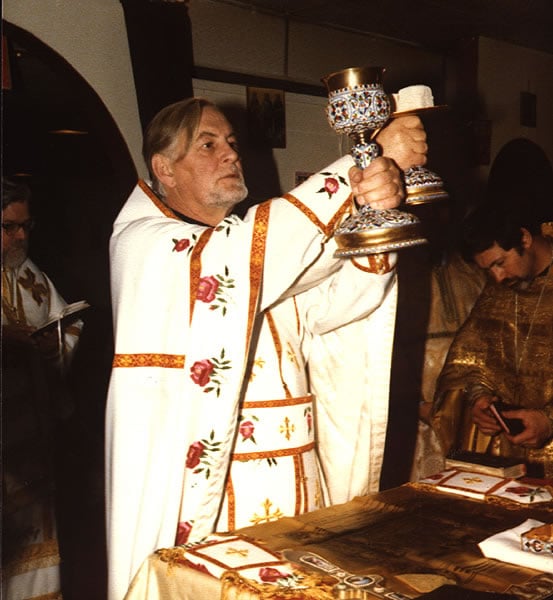I was asked to review a new book from Oxford University Press entitled Religion in a Changing Workplace.
Elaine Howard Ecklund (a sociologist at Rice), Denise Daniels (a business professor at Wheaton), and Christopher P. Scheitle (a sociologist at the University of West Virginia) polled some 15,000 people and conducted interviews with hundreds of them regarding religious issues in the workplace.
The book was filled with interesting information on a wide range of topics, but what struck me the most is that it offers, in effect, the first large-scale empirical study of vocation that I’m aware of.
See my review at Religion & Liberty Online entitled Faith at Work: The Difference ‘Calling’ Can Make, with the deck, “A major study of religious issues in the workplace gives empirical backing to the doctrine of vocation.”
The authors cite previous research sorting out how people view their work: as a “job” (that is, as simply a practical necessity to earn a living); as a “career” (satisfying personal ambitions); or as a “calling” (personally fulfilling because it serves a higher purpose and makes a difference in the world).
The current study, however, finds that 20% of American workers see what they do as a “spiritual calling.” This is true of 38% of evangelical Protestants, 23% of mainline Protestants, and 18% of Catholics. Of the “very religious,” 44% have this sense of calling, while 22% of the “moderately religious” and only 8% of the “not religious” do.
Of those who have a sense of calling, 53% are “very satisfied” in their work, compared with 39% who don’t. Of those who consider their work to be a calling, 61% say their faith helps them find meaning and purpose in their daily tasks, compared with 13% who don’t. Those who feel called also better coped with problems at work, experienced less stress, and found a higher purpose, “especially when facing work that is either extremely challenging or mundane.”. . .
According to their findings, the most common verbal religious expression in the workplace is not proselytizing but attempts to offer some sort of spiritual support to a colleague in need. The most common expression of prayer in the workplace is not in the lunchroom or in support of some work-related task. Rather, it is in the context of caring for a fellow worker with a problem by saying, “I’ll pray for you.”. . .
Religious workers we spoke to were most likely to intervene or speak up when unethical behavior affected someone for whom they were directly responsible. These workers would use their faith as a resource to step in and confront authority figures and structures, often based on a religious imperative to love and care for others.
In the section on what responders said about the meaning and purpose of their work, each of the types described involved helping others: “Products and services benefit others.” “Work provides money and skills to serve or help others outside of work (congregation and community).” “Worker feels like their skills put to good use.” “Work provides opportunity to serve coworkers and/or customers.”
All this supports Luther’s view of vocation, that the purpose of every calling—in the workplace, in marriage, in parenthood, in our citizenship, in the church—is to love and serve our neighbors.
Doubtless few of the 15,000 respondents know anything about Luther’s doctrine of vocation. They certainly do not offer prayers for their colleagues or stand up for them when they are mistreated because Luther told them to. Luther was simply describing how ordinary Christians, in fact, live out their faith in their ordinary callings. . . .
The wealth of data gleaned by the authors of this book contains some surprises. Critics of the doctrine of vocation have been saying that the teaching supports highly paid professionals who can be expected to find their work meaningful and satisfying but has little to offer low-paid manual workers, whose labor is a painful, meaningless slog. But this research has found that while the top leaders of companies do often have a sense of calling, workers who make less money are more likely to see their work as a calling than those who make more!
Also, to use DEI language, “marginalized” groups tend to have a stronger sense of calling than “privileged” groups: 31% of black workers do compared with 18% of white workers; 24% of women, compared with 17% of men. Interestingly, black workers are also the most likely to feel motivated to talk about their faith at work (36%), compared with white workers (26%). . . .
Religion in a Changing Workplace closes with recommendations, one of which is for organizations to help develop a sense of calling in their employees: “Organizational leaders can foster a sense of calling among their workers by emphasizing the purpose and value of their work, reminding them how their work helps others, or focusing on how the organization contributes to the common good.” That would almost certainly be more welcome than a DEI seminar.
Photo by Angela Xu, The Church of Almighty God | Church life – Pray 013 via Flickr, CC BY-NC-ND 2.0



















